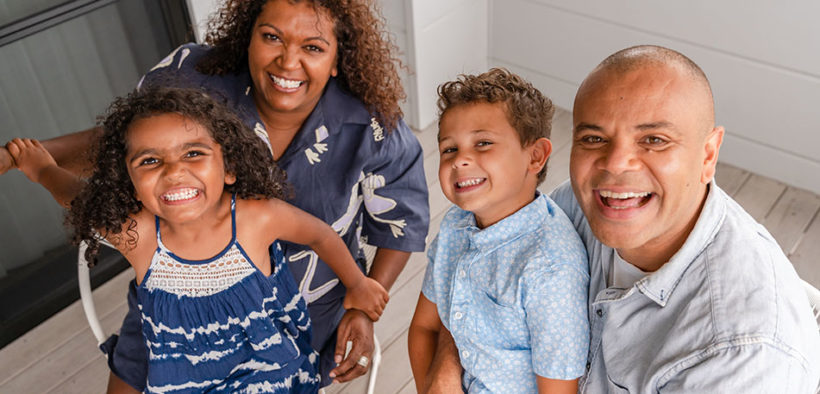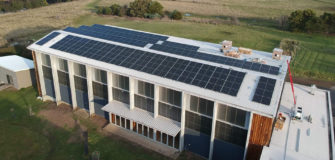Parents Luke Carroll (Actor and Playschool Presenter) and Emma Donovan (Musician) have joined the Hearing Australia campaign to help promote the importance of detecting ear disease in Aboriginal and Torres Strait Islander children as early as possible.
Hearing Australia’s ongoing “Hearing Assessment Program — Early Ears” or HAPEE, is a result of a $30 million investment by the Australian Government to reduce the long-term effects of ear disease in Aboriginal and Torres Strait Islander children.
As of writing, one in three Aboriginal and Torres Strait Islander children experience chronic ear disease in Australia.
All Aboriginal and Torres Strait Islander children not yet attending full time school are eligible for a free hearing check across the country, as the program has expanded to care for more communities in urban, regional and metro areas.
Gumbaynggirr, Dhungatti, Yamatji and Bibbulman woman, Emma Donovan is urging other parents and carers to have their children’s ears checked regularly.
Emma’s youngest child’s hearing loss was detected early.
“From birth, my daughter has had regular appointments with Hearing Australia,” she said.
“I had a lot of questions. I was a little bit frightened and I was unsure about things. What Hearing Australia did for me and my daughter was help us to understand more about her deafness and what kind of deafness it was.”
Emma highlighted that the regular appointments and check-ups have helped her to feel more secure.
Wiradjuri man, acclaimed actor and father, Luke Carroll, has a similar message for parents and carers.
“I know we get it done as babies and that’s done at the hospital. But it’s important for us to make sure our children’s hearing is checked regularly as they progress through life. This will help them grow as young healthy human beings,” he said.
Michele Clapin, HAPEE Manager at Hearing Australia echoed this sentiment, “It’s essential that we identify hearing loss early on, especially between the ages of 0-3 when a child’s listening and language skills are developing rapidly. It means that when that when a child starts school, their listening and communication skills are more likely to be on track, so they’ll be better equipped to participate in, succeed in and enjoy education,” she said.
Since Hearing Australia’s 2019 launch of HAPEE, over 6,000 assessments have taken place for some 5,000 children in 180 communities nationally. To date, Hearing Australia has identified over 1,100 children with undiagnosed hearing loss and helped them to get the care they need.
“With the support of the Australian Government, Hearing Australia is increasing its focus on improving the hearing health of all Australians through the prevention of avoidable hearing loss”, said Kim Terrell, Managing Director, Hearing Australia.
HAPEE aims to engage communities and healthcare professionals with a focus on encouraging early and regular assessments for children before they reach school age.
“I know hearing goes hand in hand with education which is a big part of our lives,” said Luke.
Hearing Australia’s HAPEE program was developed with Aboriginal Community Controlled Health Services representatives along with key people from the Aboriginal and Torres Strait Islander hearing health sector.
HAPEE uses hearing screening resources developed by the National Acoustic Laboratories (NAL), the research division of Hearing Australia, to identify hearing problems earlier in young Aboriginal and Torres Strait Islander children. The Parent-evaluated Listening and Understanding Measure (PLUM) and the Hearing and Talking Scale (HATS) have been developed in collaboration with Aboriginal health and early education services.
As well as providing free diagnostic assessments, HAPEE aims to upskill and support primary care providers, early education staff, and parents and carers with the ability to identify, manage and monitor potential hearing loss in young children.
Paulo Rizal is a content producer for Third Sector news. He has working experience in journalism, SEO, and social media marketing.


























































































































































